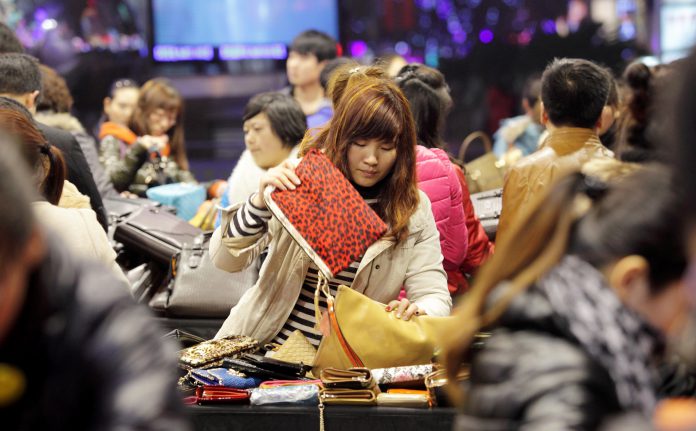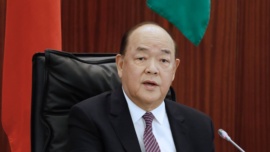
Tiago Vilhena, Partner, MdME 
Sónia Antunes, Associate, MdME
It is undeniable that the retail sector is one of the pillars of the Macau’s economy.
While the covid-19 pandemic has undoubtedly shaken the economic environment in Macau, with the opening of the borders and revival of the tourism industry, it appears that the retail sector has steadily regained its momentum with retail sales approaching their pre-pandemic levels. Visitors to Macau can witness this clearly from the lines of enthusiastic buyers swarming the shopping malls boasting of international brands located at the major hotels and casino resorts.
Unsurprisingly for Asia’s top travel destination, Macau is characterized by the presence of world-renowned international brands and continues to attract new investors to enter into the Territory with the opening of new outlets throughout the array of world-class integrated resorts and shopping malls. For international retailers, the Territory continues to offer immense business opportunities with its thriving retail market.
Notwithstanding, entering the Macau retail market scene and navigating the Macau legal system may pose some initial hurdles for new investors. To facilitate interested retailers who are ready to venture into this ever-growing sector, we have compiled the following key information on the Macau retail market:
1. Establishing a retail business in Macau
Establishing a retail business in Macau is typically accomplished through the incorporation of a Macau company or a Macau branch. Relevant registration is mandatory with the Macau Commercial and Moveable Assets Registry.
In order to incorporate an entity in Macau, the interested party will have to know, in particular, the type of entity they intend to incorporate, its shareholding structure, the share capital and the registered office, amongst other details.
According to Macau laws, there are limited and unlimited liability companies.
For standard commercial and business operations in Macau, such as retail businesses, limited liability company by quotas is the most common type, offering greater management and corporate governance flexibility (e.g., minimum of 1 shareholder and a share capital of MOP25,000.00), as well as lower accounting requirements.
On the other hand, limited liability company by shares (also known as joint stock company) requires a more complex structure (e.g., minimum of 3 shareholders, share capital of MOP1,000,000, board of directors, company secretary and supervisor) and must comply with more stringent accounting and tax reporting obligations. It provides, however, more options in terms of bringing additional investors. Joint stock companies are normally used for highly regulated activities or more investment driven companies (such as gaming operators, banking and insurance companies).
Alternatively, registration of a branch is also permitted in Macau.
2. Taxation
Macau taxation system is considered straightforward and favorable for investors.
With regards to corporate taxation, all entities engaged in retail business are subject to industrial tax and complementary income (profits) tax.
For complementary income (profits) tax, according to the “2022 Budget Law”, approved by Law no. 21/2021 (the “Budget Law”), the 2022 exercise exemption was set at MOP600,000 (Six Hundred Thousand Patacas) for taxable profits. All taxable profits exceeding such a limit shall be taxed at a flat rate of 12%.
The industrial tax for commercial and industrial business activities has been exempted for several years.
Among the other taxes that a potential investor should take into account are property tax, professional tax, social security contributions and stamp duty.
3. Employment and Immigration
New entrant retailers will benefit from a well-aligned HR strategy that will enable them to launch their operations effectively and efficiently.
In principle, only Macau residents are allowed to provide work in Macau. For foreign individuals, work permits must be obtained. A work permit is divided in the following categories:
- Skilled work permits: issued for skilled workers with specific expertise;
- Non-skilled work permits: issued for workers intending to carry out general or unspecified labor.
The issuance of work permits is subject to the verification of a set of requirements and submission of relevant documentation with the labor and immigration authorities.
4. Real Estate
The most common agreement used by retailers to rightfully operate spaces in shopping malls (complexes gathering in one single space several shops and shared common areas) is through a Grant-of-Use Agreement (“GoU”). This type of agreement is not expressly established in the Macau Civil Code or under any specific law, therefore, the commercial terms of the GoU can greatly vary, and negotiations shall be conducted between the retailer and the owner of the property to balance the interest of both parties.
GoU has previously been excluded from stamp duty. However, in 2021, several changes occurred to the Stamp Duty Law (Law no. 17/88/M), creating stamp duty over these contracts, which is payable by the owners and/or operators of shopping malls.
5. Licenses and permits
Depending on its business scope and commodities intended to offer, retailers should also become familiar with any licensing and permit requirements prior to the launch of its operations.
A retailer should be aware that any business unit (e.g., shop) requires registration at the Macau Tax Department. Subsequent changes to the details of the said business unit are also subject to registration.
In addition, a retailer conducting import and export operations is subject to prior registration with the Economic and Technological Development Bureau (DSEDT) and certain goods and commodities listed under the applicable regulations require obtaining a license from specific governmental entities.
In Macau, there is a list of goods whose import and/or export is subject to import/export license (“Import/Export List”). The Import/Export List is updated by the government from time to time.
If the import/export of good is not subject to the administrative license under the Import/Export List, the regime of declaration is required if the value of the good to be imported/exported is: i) higher than MOP5,000; or ii) not higher than MOP5,000, but the good to be imported/exported is part of the whole import/export activity whose value is higher than MOP$5,000.
For specific niche operations, such as hair salons, barber shops, beauty salons, auctions, special administrative permits are necessary.
6. Intellectual Property
In order to remain competitive, retailers need to understand that protecting and enforcing their trademarks, patents, designs, copyrights, domain names and/or relevant intellectual property are of the utmost importance for the business.
The registration of a trademark is accomplished through the filing of an application form to the Economic and Technological Development Bureau (DSEDT).
The first to file rule applies in Macau. In other words, in principle, registration of ownership of an intellectual property right is granted by the registration to the first applicant.
For the establishment of a business in Macau, the interested party should also file an application for trade name admissibility with the Macau Commercial and Moveable Assets Registry upon commencing the incorporation of a corporate entity. The use of a trademark as a Macau company tradename requires the consent from the exclusive owner of the trademarks.
7. Distribution and Franchising Arrangements
As a business model, retailers may prefer to engage in a franchising or distribution arrangement to conduct their operations in Macau.
Franchising and distribution regimes are specifically regulated in the Macau Commercial Code.
There are mandatory rules and specific provisions which apply to the abovementioned arrangements, including, but not limited to, pre-contractual conduct, disclosures, general obligations and rights of the franchisor/ franchisee or grantor/distributor and explicit termination requirements.
8. Compliance – Data Privacy
Data collection, treatment and transfer are regulated under Law No. 8/2005 (the “Data Protection Law”), which sets out a number of requirements for the valid collection, treatment and transfer of data to outside of Macau, namely regulatory requirements of notification (and in some cases authorization) by the Office of Data Protection, the local regulatory body.
As a rule, the collection, treatment and transfer of personal data is subject to the issuance of a notice to the Office of Data Protection in a pre-approved form issued in one of the official languages of Macau by the relevant entity.
Certain types of data collection and treatment (e.g. sensitive data or combination of data) are subject to prior authorization by the Office of Data Protection.
9. Compliance – Anti-Money Laundering and Combatting Financing of Terrorism (“AML/ CFT”)
Anti-Money Laundering and Combating the Financing of Terrorism are regulated in: i) “Law no.2/2006-Money Laundering Prevention and Repression Law” and “Law no. 3/2006-Terrorism Prevention and Repression Law”.
It is to be noted that some luxury retailers are considered as “dealers of high unitary value goods”. These targeted entities shall comply with Notice no. 1/2019 (an AML/CFT guideline for the retail sector, auctions, and other company service providers).
The abovementioned retailers are required to comply with the statutory AML duties, including, but not limited to: i)carrying out of a complete identification of clients and transactions; ii) registering and reporting cash transactions and suspicious operations; iii) refusing transactions with unidentified clients; iv) collaborating with local authorities on AML matters.
10. Consumer Protection
Retailers must also ensure that good commercial practices are being implemented to promote fair competition and protect customers’ rights and interests.
A newly enacted law on the protection of consumer rights and interests was passed in 2021 (taking effect on 1 January 2022). This new law introduced a number of changes, in particular, regarding consumer protection rights, including the right to information, the quality of goods and services, price fluctuations and repair of defective products. The Consumer Council competence was also strengthened with the new law being now able to impose sanctions to operators who breach the relevant provisions.
























